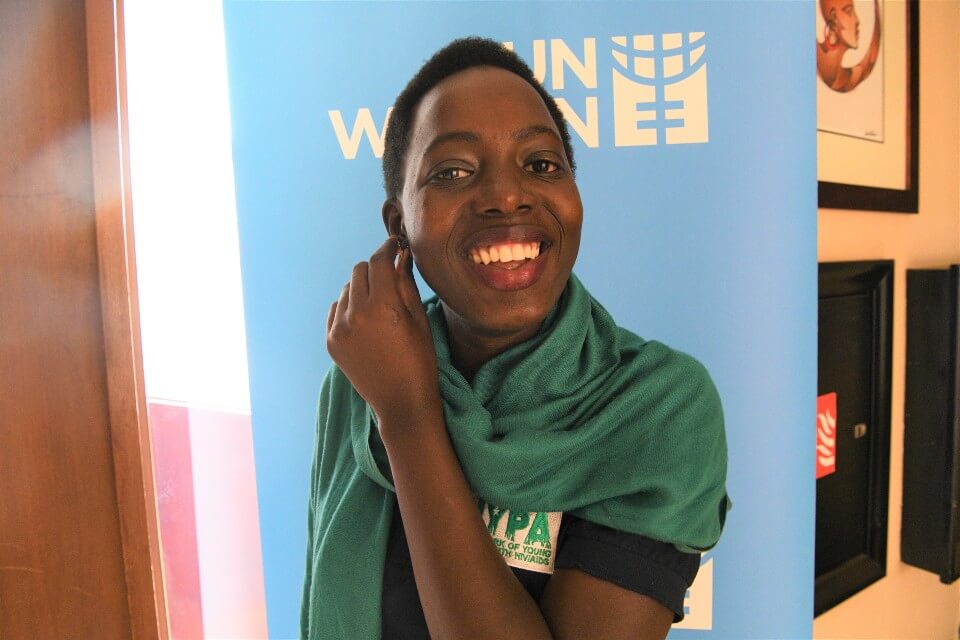I am Generation Equality: Martha Clara Nakato, advocate for bodily autonomy and sexual and reproductive health rights in Uganda
Billions of people across the world stand on the right side of history every day. They speak up, take a stand, mobilize, and take big and small actions to advance women’s rights. This is Generation Equality.Date:
Originally published on UN Women's regional website for Africa


Three things you can do to become part of Generation Equality:
- Unite to create and drive change for women’s rights.
- SPEAK OUT when you see violence – Be a Role Model.
- Before we blame other stakeholders’ inaction, ask yourself what you are doing to empower women and girls in your community and end violence.
I am Generation Equality because…
Women should not be treated as second-class citizens no matter our social status, health status or setting we live in; just like men, we are all human beings who deserve equal rights and dignity. I am a woman! If I don’t speak out for my rights and the rights of other women who are oppressed or excluded, who will speak out for me when I’m faced with the same inequalities?
Throughout my work, I mentor and empower girls and women to become resilient and independent through understanding their rights and responsibilities, and to deal with the vulnerabilities that are likely to expose them to HIV infection. Women are the greatest resource that countries have: it is important that we feel safe in our communities, that our contributions are valued in all sectors and that investment is made to unleash our potential.
Harmful practices exacerbate inequalities
Most women in rural communities still lack ownership over their bodies and the power to make informed choices about their sexual and reproductive health needs, partly due to their limited access to essential reproductive health services. Harmful traditional practices such as female genital mutilation, child marriage and widow inheritance laws continue to exacerbate women’s and girls’ vulnerabilities.
Too many girls in rural communities are left behind, forced to drop out of school and marry at an early age. Too many girls and women lack access to technology and innovation that could be key in improving their lives.
“Make it your business to speak out and call out perpetrators of violence on girls and women whenever you encounter them in communities or streets.”
Taking action for change
Do something using available means, whether online or in person, to educate people around you about the sexual and reproductive health needs and rights of girls and women and strategies to make them accessible.
We are the change and the drivers of that change we want to see. Young people need to be at the forefront of mobilizing their respective communities in using digital platforms and innovation to educate, empower, advocate and advance gender equality and women’s empowerment.
Martha Clara Nakato, 24, is a young person living with HIV from Tororo District, Uganda. A passionate advocate for bodily autonomy and sexual and reproductive health rights, Nakato works with the Uganda Network of Young People Living with HIV & AIDS (UNYPA) and is an active member of Uganda’s Generation Equality consultations. Bodily autonomy and sexual and reproductive health and rights is one of the six Generation Equality Action Coalitions, which are global, multi-stakeholder partnerships mobilizing governments, civil society, international organizations to take action and create change.